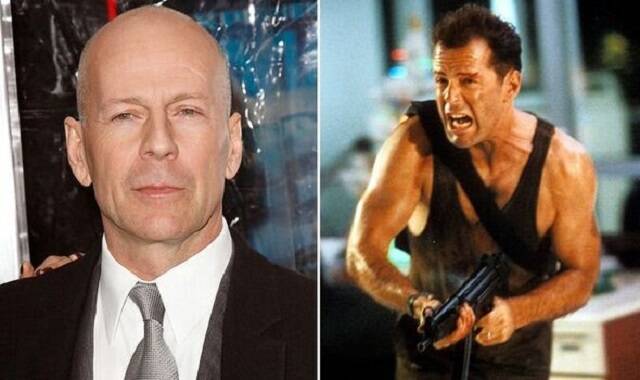‘Die Hard’ legend Bruce Willis (67) diagnosed with ‘cruel disease’ dementia

Bruce Willis’ family on Thursday announced that the actor has been diagnosed with a rare form of dementia, a “cruel disease”.
Bruce Willis (67) has been diagnosed with frontotemporal dementia (FTD).
After retiring from acting in 2022 because of his aphasia diagnosis, it has now progressed into this rare form of dementia.
On Thursday, Willis’ family released a statement, noting the disease is “cruel”.
While the family is heartbroken over this diagnosis, they are reportedly relieved by this clear diagnosis.
While this is painful, it is a relief to finally have a clear diagnosis. FTD is a cruel disease that many of us have never heard of and can strike anyone. For people under 60, FTD is the most common form of dementia, and because getting the diagnosis can take years, FTD is likely much more prevalent than we know.
Willis’ family statement
The family continued to say that there is no treatment or cure for this kind of dementia yet…
Today there are no treatments for the disease, a reality that we hope can change in the years ahead. As Bruce’s condition advances, we hope that any media attention can be focused on shining a light on this disease that needs far more awareness and research.
Willis’ family statement
They continued to speak about Willis’ character…
Bruce has always found joy in life – and has helped everyone he knows to do the same. It has meant the world to see that sense of care echoed back to him and to all of us. We know in our hearts that – if he could today – he would want to respond by bringing global attention and connectedness with those who are also dealing with this debilitating disease and how it impacts so many individuals and their families.
Willis’ family statement
Experts have said that this disease is ‘heartbreaking’ and very debilitating.
As the condition progresses, quality of life is pretty significantly affected. The disease is exceedingly difficult to live with. There was one study that actually looked at caregivers’ [perspective on] the quality of life of their loved ones with FTD, and particularly behavioral variant FTD, and the more common kind of response was ‘worse than dead’.
Dr. Salinas, Assistant Prof of Neurology – NYU Langone Health and Chief Medical Officer – Isaac Health
Of course, the family thanked fans for their well-wishes and support during this challenging time too.
- 702.co.za











Comments